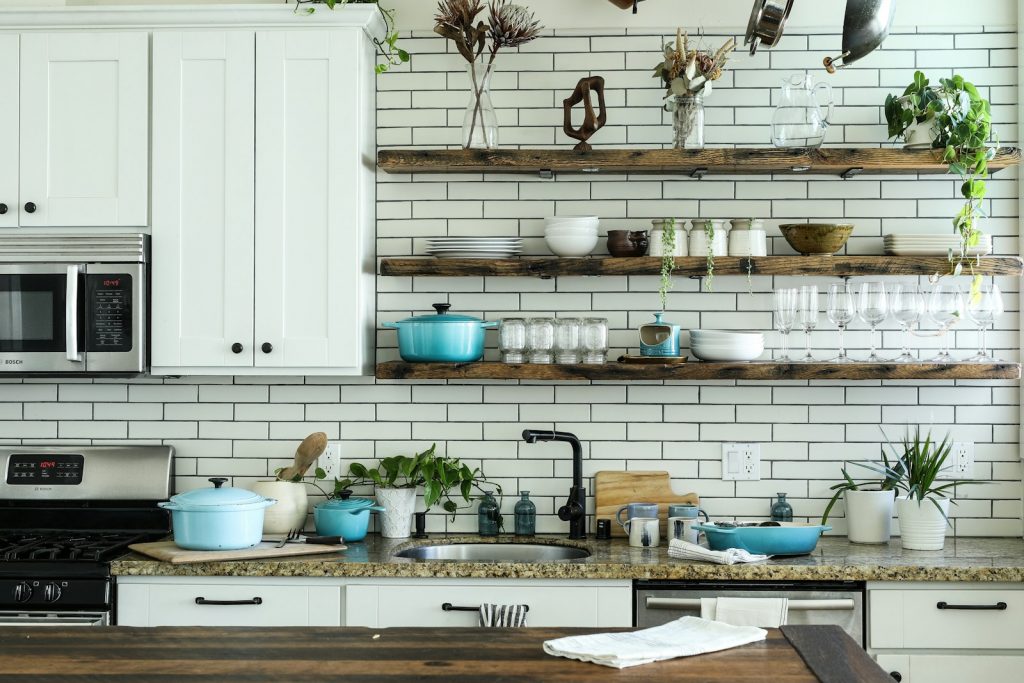Introduction to Zero Waste Living
Zero waste living is an eco-conscious lifestyle choice aimed at minimizing waste generation in everyday life. This approach focuses on reducing, reusing, and recycling materials to ensure that as little waste as possible ends up in landfills or incinerators. It encompasses a broader view of sustainability by encouraging individuals to rethink their consumption habits, prioritizing durable and reusable products, and selecting items with minimal packaging. According to the BDC Network, businesses are increasingly adopting zero waste initiatives, highlighting the growing recognition of its significance across various sectors.
Understanding the Benefits of a Zero Waste Lifestyle
The importance of adopting a zero waste lifestyle extends beyond individual choices; it significantly impacts environmental and personal well-being. By reducing waste, individuals contribute to diminishing pollution and depletion of natural resources. Studies indicate that replacing single-use plastics with more sustainable alternatives can also lead to health benefits, such as minimizing exposure to harmful chemicals found in plastics [Source: Money Talks News]. Furthermore, adopting these practices can result in substantial financial savings—averaging $100 to $200 annually—by eliminating the recurring costs associated with disposable items.
Zero waste strategies not only foster a healthier planet but also promote a more mindful and fulfilling lifestyle. By embracing these changes, individuals can contribute to sustainable agriculture and waste management practices that protect our environment and facilitate the responsible use of resources [Source: The Hindu Business Line]. For those ready to transition towards sustainability, implementing zero waste strategies can lead to a more resilient and eco-friendly household, as outlined in our guide on making your home truly eco-friendly.
Adopting a zero waste lifestyle brings numerous benefits spanning financial savings, environmental impact, and personal satisfaction. One of the most immediate financial advantages is the reduction in expenses associated with single-use products. According to Consumer Reports, households can save between $100 to $200 annually by replacing disposable wraps, bags, and containers with reusable options. This approach not only lightens your wallet but also promotes a more sustainable lifestyle by decreasing reliance on plastics.
From an environmental perspective, a zero waste lifestyle significantly minimizes the waste that ends up in landfills. Implementing practices such as recycling, composting, and upcycling can lead to a reduced carbon footprint and help conserve natural resources. Businesses that adopt zero waste initiatives can establish closed-loop manufacturing processes, which allow materials to be reused or repurposed, reducing their overall environmental impact [Source: BDC Network].
Personal satisfaction is another key benefit. Many individuals find that reducing waste aligns with their values and ethics, fostering a sense of community engagement and purpose. The act of making mindful choices can enhance one’s overall well-being, as it encourages a more intentional and fulfilling relationship with consumption.
Practical Steps to Reduce Waste at Home
1. Declutter Your Space
Start by assessing your belongings and eliminate items you no longer need. Consider using the “one in, one out” rule to maintain a balance. Donate or sell items in good condition and recycle where possible. A decluttered space promotes a clearer mind and reduces the chances of acquiring items that contribute to waste. Tips for an efficient declutter can be found in this article about kitchen decluttering [Source: Women’s Health].
2. Implement Recycling Practices
Set up a designated area in your home for recyclable materials, like paper, plastics, and metals. Familiarize yourself with local recycling guidelines to ensure you are recycling correctly, as contamination can hinder recycling efforts. Discover how to effectively incorporate recycling into your eco-friendly practices further in our guide on sustainable living [Source: Simply Sustainable Home].
3. Composting Kitchen Scraps
Composting is an excellent way to reduce food waste while enriching your garden soil. Set up a compost bin for vegetable peels, coffee grounds, and other organic matter. Even in small spaces, composting can be managed effectively. Check out our beginner’s guide to composting [Source: Simply Sustainable Home] for details on how to get started.
4. Reduce Single-Use Plastics
Switch from single-use plastic products to reusable alternatives. This includes using glass or metal containers for food storage instead of plastic. According to [Source: Money Talks News], this change can save a household between $100 to $200 annually and decrease exposure to harmful chemicals found in plastics.
5. Smart Meal Planning
Plan your meals ahead of time to avoid food waste. By strategically shopping and cooking, you’ll only buy the ingredients you need, preventing excess food from spoiling. Our article on smart meal planning offers additional insights on reducing food waste in your kitchen [Source: Simply Sustainable Home].
Zero Waste Products You Need to Know About
Transitioning to a zero waste lifestyle can significantly reduce your ecological footprint while promoting sustainability. Here’s a curated list of essential zero waste products that are both beneficial and accessible.
1. Reusable Produce Bags: Ditch single-use plastic bags by opting for reusable mesh or cotton produce bags. They are lightweight, machine washable, and durable, making them an excellent choice for shopping at the grocery store. Plus, they can help you save money on bag purchases over time [Source: Money Talks News].
2. Beeswax Wraps: These versatile wraps are ideal for covering food and wrapping up snacks. Made from organic cotton infused with beeswax, they can replace plastic wrap in your kitchen, reducing plastic waste significantly [Source: Simply Sustainable Home].
3. Solid Shampoo and Conditioner Bars: These products eliminate the need for plastic bottles and are often made with natural ingredients, benefiting both your hair and the environment. Choosing solid versions can also cut down on shipping emissions as they are lighter and last longer than their liquid counterparts [Source: Money Talks News].
4. Reusable Water Bottles: Opt for stainless steel or glass water bottles to minimize single-use plastic consumption. Investing in a good-quality bottle not only saves money in the long run, but also encourages hydration without waste [Source: Simply Sustainable Home].
5. Compost Bin: Composting kitchen scraps reduces waste and creates nutrient-rich soil for your plants. There are various models available, including indoor composters suitable for apartments [Source: Simply Sustainable Home].
6. Stainless Steel Straws: A great alternative to plastic straws that can help reduce ocean pollution. Many are foldable and come with cleaning brushes for easy maintenance [Source: Simply Sustainable Home].
7. Bulk Food Containers: Bring your own containers to buy bulk items, reducing packaging waste considerably. Many stores now offer bulk sections for grains, nuts, and dried fruits, allowing you to purchase only what you need [Source: Simply Sustainable Home].
By incorporating these zero waste products into your daily routine, you can significantly lessen your impact on the environment while fostering a lifestyle that values sustainability.
Sustainable Living Practices to Embrace
Embracing sustainable living practices extends beyond a zero waste lifestyle, promoting a holistic approach to environmental responsibility. Here are some key practices to consider:
1. Sustainable Agriculture: Implementing methods such as climate-smart agriculture encourages responsible resource use while enhancing productivity. This not only helps in managing waste but also supports a healthier ecosystem. Sustainable farming practices include crop rotation, reduced chemical use, and organic farming, all aimed at minimizing environmental impact and promoting biodiversity [Source: The Hindu Business Line].
2. Eco-Friendly Home Design: Opting for materials that promote sustainability in home design is crucial. This can involve choosing energy-efficient appliances, sustainable building materials, and designs that maximize natural light and ventilation, thereby reducing the overall carbon footprint of a household [Source: Simply Sustainable Home].
3. Energy Conservation: Incorporating practices such as using energy-efficient LED bulbs, high-efficiency appliances, and smart home technologies can significantly lower electricity consumption. Simple steps like switching off lights when not in use and utilizing solar energy can further enhance energy conservation in the home [Source: Simply Sustainable Home].
4. Water Conservation: Adopting water-saving practices, such as using low-flow fixtures, rainwater harvesting, and drought-resistant landscaping, helps in reducing water usage and promotes the sustainable management of this vital resource [Source: Simply Sustainable Home].
5. Personal and Household Products: Transitioning to eco-friendly cleaning products and everyday items can significantly reduce harmful waste. Utilizing biodegradable materials and natural ingredients in personal care and cleaning products contributes to a healthier living environment [Source: Simply Sustainable Home].
Incorporating these sustainable practices into daily life not only aligns with a zero waste philosophy but also fosters a comprehensive approach to environmental stewardship.
Sources
- BDC Network – How to Drive Sustainability in Material Selection
- Money Talks News – Double Detox: Microplastic-Fighting Habits that Pay Off Fast
- The Hindu Business Line – A Resilient Environment is Key to Sustainable Agriculture
- Simply Sustainable Home – How to Make Your Home Truly Eco-Friendly
- Simply Sustainable Home – A Beginner’s Guide to Composting Kitchen Scraps
- Simply Sustainable Home – Smart Meal Planning: How to Stop Food Waste in Your Kitchen
- Simply Sustainable Home – DIY Reusable Food Wraps: A Simple Eco-Kitchen Project
- Simply Sustainable Home – How to Design an Eco-Friendly Home: A Comprehensive Guide
- Simply Sustainable Home – 10 Simple Ways to Save Energy in Your Eco-Friendly Kitchen
- Simply Sustainable Home – How to Conserve Water in the Kitchen: Practical Tips for Families
- Simply Sustainable Home – The Ultimate Guide to an Eco-Friendly Kitchen for Beginners and Families
- Women’s Health – Declutter Your Kitchen


